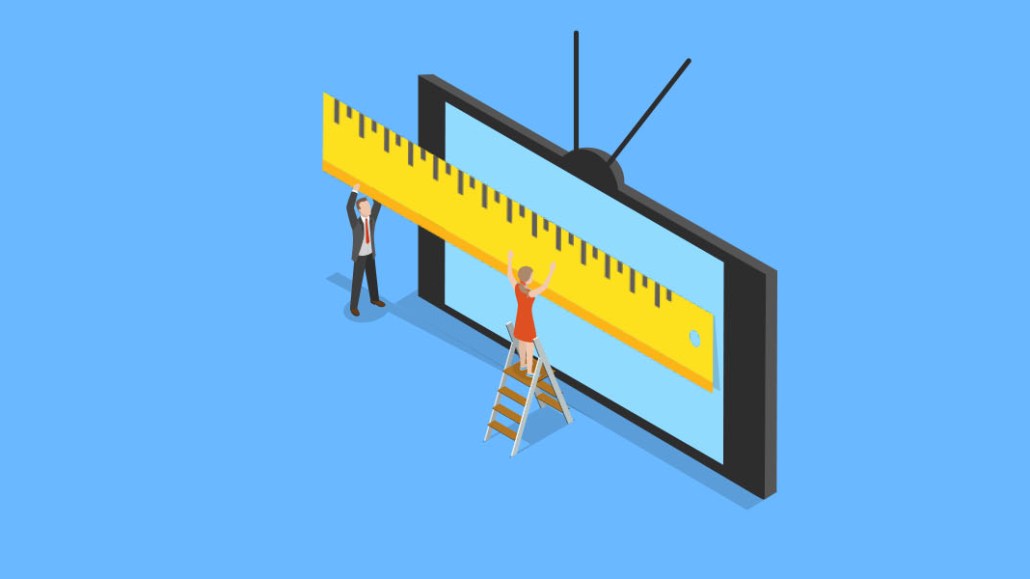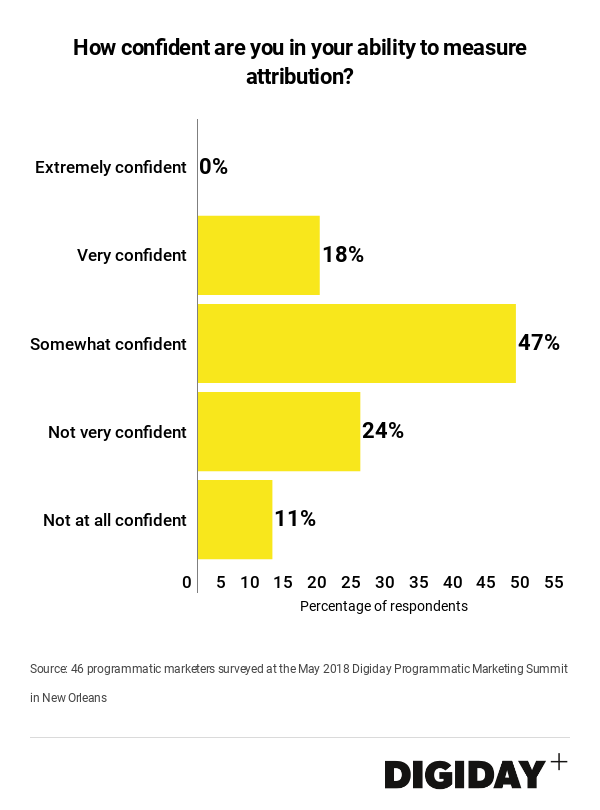Save 50% on a 3-month Digiday+ membership. Ends Dec 5.
Digiday Research: Marketers still can’t measure attribution accurately

This research is based on unique data collected from our proprietary audience of publisher, agency, brand and tech insiders. It’s available to Digiday+ members. More from the series →
Marketers have struggled to accurately measure attribution in digital marketing for decades. Even with a range of attribution vendors on offer, marketers say they are no closer to measuring it reliably. Only 18 percent of marketers polled by Digiday at its Programmatic Marketing Summit are confident in their ability to measure attribution.
Meanwhile, marketers announcing that they’re prioritizing improvements to attribution measurement is a recurring trend. In a 2015 study by Winterberry Group, 57 percent of marketers said they were prioritizing attribution in the coming year. A similar survey done by Winterberry Group in 2018 found that reliably determining attribution was the top business objective for 64.9 percent of marketers. Hint: Those marketers also said the same in 2017.
For marketers to make headway with attribution they need to overcome numerous internal hurdles such as integrating multiple data sources and accurately defining their customers’ journeys to purchase. It’s no wonder then that many continue to rely on last-touch attribution to award credit for a successful sale.

Major platforms play a difficult role for marketers when it comes to attribution. Though they are avoidable due to the scale of their audiences and the level of engagement of their ads, they’re notorious for restricting marketers’ access too data. While Amazon, Google, and Facebook have all released their own attribution tools for marketers, both Facebook and Google received significant pushback. Marketers have questioned whether data from the duopoly could be trusted due to obvious conflicts of interest. Given that Facebook had already admitted to providing incorrect video metrics, any skepticism marketers have is justified.
And of course, the General Data Protection Regulation could hinder efforts to improve attribution. Because consumers have to consent to having their internet activity monitored by companies, they can restrict the necessary technologies marketers use to measure the effectiveness of digital campaigns. To make matters more complicated, Facebook and Google further limit the audience data available to marketers to ensure compliance with GDPR. At this rate it could be years before marketers are confident in their attribution measurement capabilities.
More in Marketing

Ulta, Best Buy and Adidas dominate AI holiday shopping mentions
The brands that are seeing the biggest boost from this shift in consumer behavior are some of the biggest retailers.

U.K. retailer Boots leads brand efforts to invest in ad creative’s data layer
For media dollars to make an impact, brands need ad creative that actually hits. More CMOs are investing in pre- and post-flight measurement.
Ad position: web_bfu